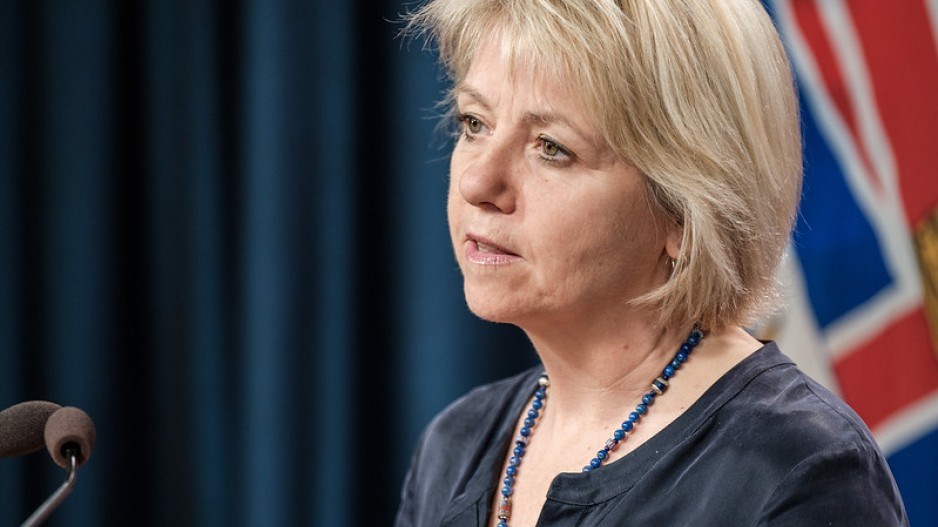B.C. continues to see daily new COVID-19 cases climb, and with the coming of fall and flu season, British Columbians need to go back to shrinking their social bubbles and interactions, says provincial health officer Dr. Bonnie Henry.
There were nearly 100 new COVID-19 cases per day since Friday - a total of 294 - four deaths, and an increase in hospitalizations.
Henry hesitated to call the latest surge of COVID-19 cases a second wave. The more recent surge in new cases remains primarily among younger, healthy people, she said. While hospitalizations are also increasing, they are still low compared to other provinces, said B.C. Health Minister Adrian Dix.
But Henry said that, now that summer is coming to a close, “we are entering a new phase of our B.C. COVID-19 pandemic.”
After enduring restrictions on work and play in the spring, many British Columbians were able to enjoy a much needed respite this summer by going on summer holidays and generally relaxing the precautions they were forced to take.
“Many of us recharged,” Henry said. “Now we must slow down on our social interactions and we must prepare for the respiratory season ahead."
Warmer weather is believed to reduce the spread of COVID-19, so with colder weather coming, there could be a resurgence of the virus. And the pressure on the health care system could increase with flu season.
There is also the prospect of children returning to school spreading the influenza virus, although it is possible that this year's flu season could actually be mild compared to past flu seasons, due to all the precautions taken against COVID-19.
Henry urged British Columbians to do what they can to start limiting their social interactions again.
“To be successful in this next phase, we need to step back to allow us to safely move forward in this pandemic," Henry said. "As the cooler weather arrives, we all have to be ready."
Despite a surge of infections in August, Henry was reluctant, when asked, to describe what is going on in B.C. as a second wave.
She said the restrictions put in place in March when virus cases spiked were intended to limit the impact on the health care system. She pointed out that most of the new cases in August have been largely in younger, healthier people.
"This is a surge," Henry said. "It's increased numbers that we haven't seen before, but we're not seeing that flooding of hospitals. We're not seeing large numbers of people in intensive care, and we're not seeing the transmission rates in the older age group that we were seeing."
B.C. is also better prepared than it was in March in terms of its health care system and equipment, like personal protective equipment.
B.C. Health Minister Adrian Dix said there were 13 deaths from COVID-19 in August in B.C., compared to 41 in Alberta and 84 in Quebec.
"This is not the same as a first wave, in the sense that we have 28 people in acute care compared to, say, 149 on April 5," Dix said.
Since Friday, one new outbreak has been identified at a long-term care home—Normanna Living—while outbreaks have been declared over at Dania Home and Holy Family Hospital.
That brings the total of long-term care or assisted living facilities with active cases to eight. There are two active cases in acute care facilities.
There have been no new community outbreaks, and one particularly bad one in Kelowna that followed a long weekend in July has been declared over. An outbreak on Haida Gwaii is also over.



